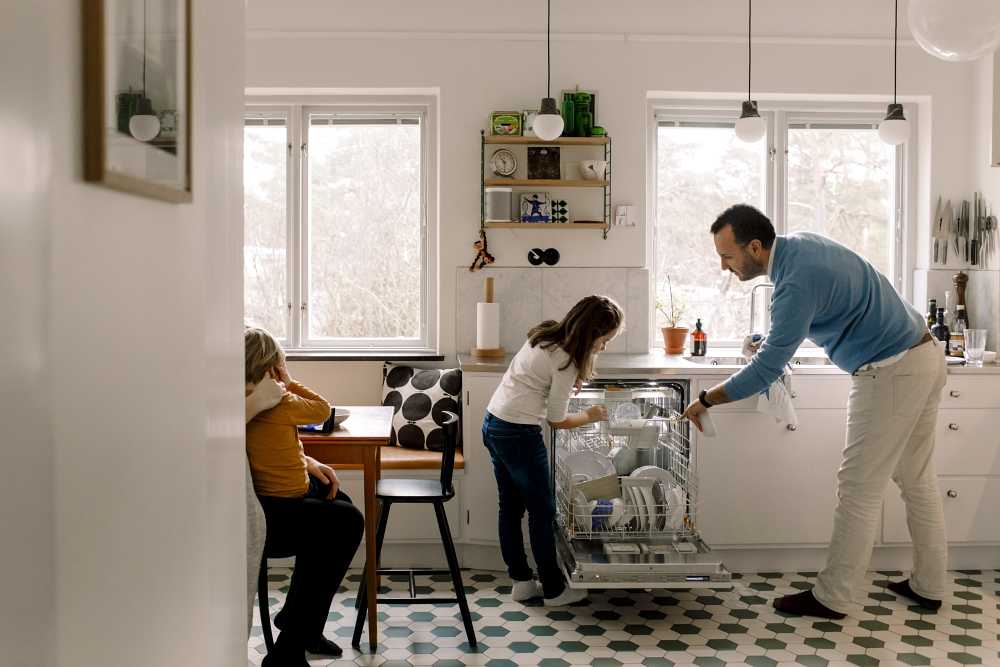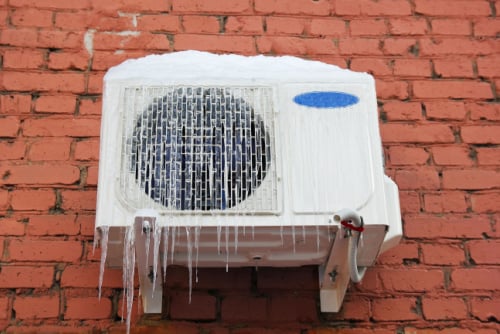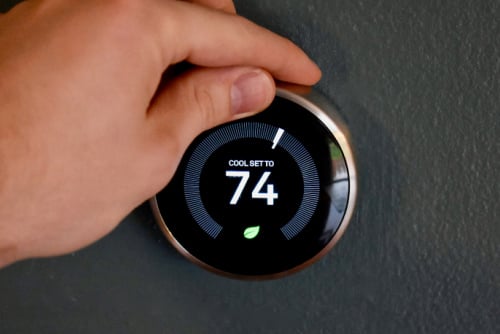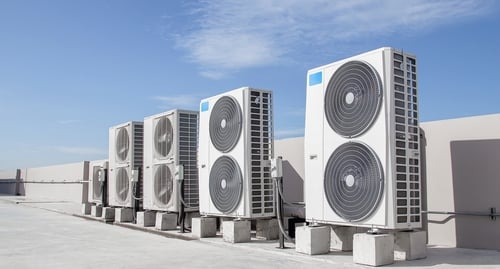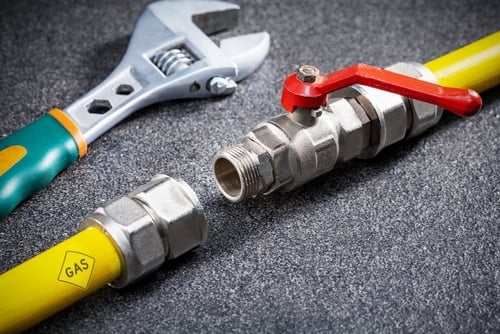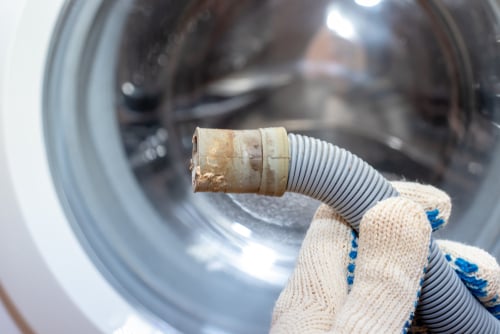It can feel like your household is powerless to use less water. After all, it’s vital to nearly everything we do, from cooking to cleaning, showering, gardening, and even just staying hydrated.
But the truth is, residential water use makes up a significant portion of overall water consumption in the U.S., and small choices at home can make a big difference. When you waste water, you're not just running up your utility bills—you’re placing added stress on your local environment.
How can people conserve water at home? That’s exactly what this guide is here to answer. From fixing sneaky leaks to choosing water-efficient appliances and adopting smarter outdoor habits, we’ll dive into how you can conserve water.
Residential water usage
We need water to run our households effectively. But the amount of water most households use each day might surprise you.
According to the Environmental Protection Agency (EPA), the average American family uses more than 300 gallons of water per day at home. That adds up to over 100,000 gallons per year, per household. About 70% of that is used indoors, while the rest goes toward outdoor activities like watering lawns and gardens (even more in drier regions like the Southwest). Here’s how indoor water usage typically breaks down:

Most of us are using more water than we think, especially through everyday inefficiencies we don’t even notice. But why should you care?
Why water conservation matters
Water conservation doesn’t just save you a few bucks on your monthly water bill, although that’s a huge bonus. When you actively conserve water, you help protect a resource that’s becoming increasingly scarce and make sure that we’re not wasting what we can’t afford to lose.
In states like California, Colorado, Arizona, and Nevada, ongoing drought conditions and strict water regulations make mindful water use a necessity. And it’s not just about these states: climate change is shifting rainfall patterns and straining freshwater supplies nationwide.
Learning how to save water helps reduce the demand on aging infrastructure and local water sources. It also means lower energy use, since treating and delivering water (and heating it in your home) takes a lot of power. In fact, the EPA estimates the average family could shrink their annual water costs by more than a third by retrofitting with WaterSense labeled fixtures and ENERGY STAR certified appliances.
When you ask yourself how you can conserve water at home, you engage in one of those small, everyday acts that adds up to something bigger. The best part is that many of the most effective ways to conserve water are easy, affordable, and require zero lifestyle overhaul.
6 Practical water saving tips
There are infinite ways to conserve water, and most don’t require dramatic lifestyle changes. Small, consistent changes around your home and a few smart upgrades can add up to major savings. Here’s are some of our top water saving tips:
-
1
Fix leaks promptly
Leaks are one of the biggest (and most invisible) water wasters in the average home. Household leaks can waste nearly 10,000 gallons of water per year—that’s the equivalent of over 270 loads of laundry. In fact, leaks can account for as much as 12% of a home’s total indoor water use.
Wondering if your home has a silent leak? Try these checks:
- Compare winter water usage: If a family of four is using more than 12,000 gallons per month during colder months, you might have a leak.
- Check your water meter: Note the reading, avoid using water for two hours, then recheck. If the number has changed, you may have a hidden leak.
- Try the food coloring test: Add a few drops of food coloring to your toilet tank. If the color appears in the bowl within 10 minutes (without flushing), you’ve got a leak.
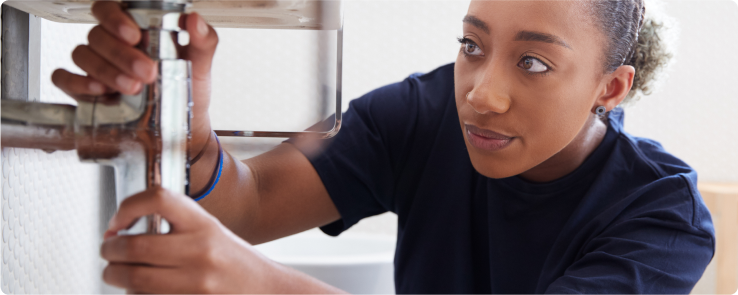
Even tiny drips add up. So don’t wait—replace worn-out washers, tighten fittings, or call a Plumbing Expert if needed. Catching and fixing leaks early is one of the simplest and most cost-effective ways to conserve water.
-
2
Install low-flow showerheads, faucets, and toilets
You don’t need to sacrifice comfort or performance to save water. Today’s low-flow fixtures are designed to work just as well (if not better) than older, water-guzzling models.
Many homes still have outdated plumbing fixtures that use far more water than necessary. For example, pre-1994 showerheads can use 5 gallons per minute (GPM) or more, while newer WaterSense-labeled models use just 2.0 GPM or less, without compromising your shower pressure.
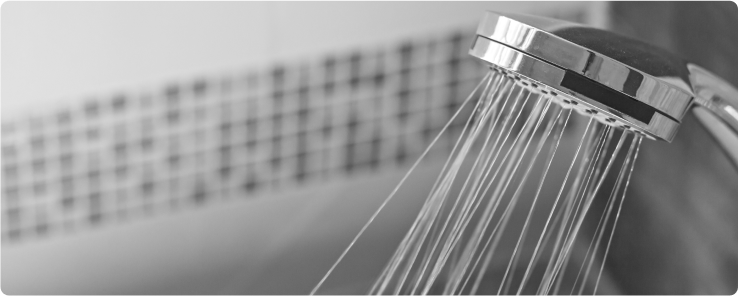
Even if you’re not ready for a full bathroom remodel, these fixture swaps are often quick, affordable upgrades. Many faucet aerators and showerheads can be installed with a wrench and a little plumber’s tape—especially when you have access to step-by-step help from a Frontdoor® Expert.
Over time, these changes can lead to thousands of gallons of water saved each year, plus noticeable reductions in your water bill. Want to know your savings potential? Try plugging your info into the EPA’s WaterSense Calculator to see just how much water and money you could conserve by making a few simple swaps.
-
3
Use water efficient appliances (dishwashers, washing machines)
Appliances do a lot of the heavy lifting when it comes to daily water use. Upgrading to ENERGY STAR® and WaterSense-certified dishwashers and washing machines is a smart way to cut water usage significantly—it's how to save water at home while also lowering your utility bills.
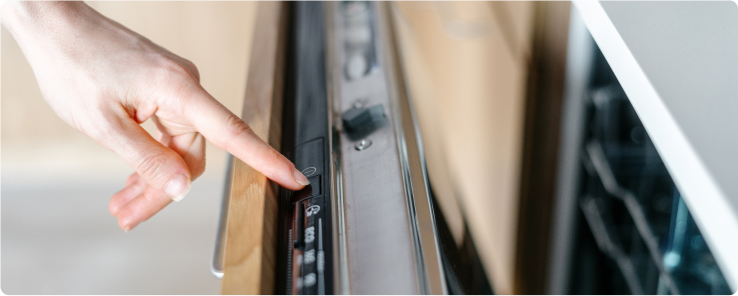
For example, where a standard dishwasher can use more than 6 gallons per cycle, newer ENERGY STAR models use as little as 2 or 3 gallons per cycle. The savings don’t end with water use. These efficient appliances also reduce the energy needed to heat that water, which means added savings on your electricity or gas bills.
-
4
Employ water-saving landscaping techniques
Outdoor water use can easily get out of control, especially in dry climates.
Here’s how to keep your yard thriving without going overboard on water:
- Reduce watering frequency: Most lawns only need one inch of water per week, including rainfall. Water early in the morning or late in the evening to minimize evaporation.
- Maintain your irrigation system: Check for leaks, broken sprinkler heads, or inefficient spray patterns. A single broken sprinkler head can waste 25,000 gallons of water in just six months.
- Use mulch: A 2–3 inch layer of mulch around plants helps retain moisture, regulate soil temperature, and prevent weed growth.
- Collect rainwater: In regions where it’s allowed, rain barrels are a great way to water plants sustainably. (Just check your local regulations—some drought-prone areas restrict rainwater collection.)
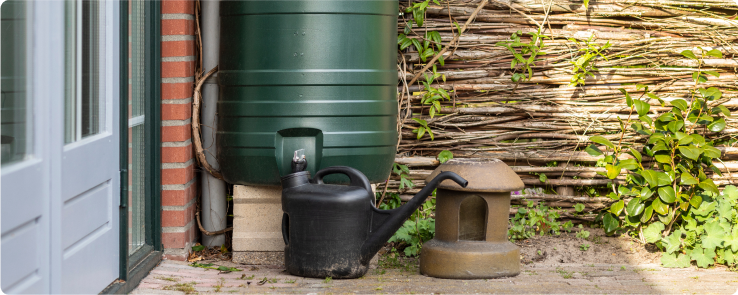
Better yet, consider xeriscaping: a landscaping method that uses drought-tolerant plants and minimal grass to create beautiful, low-maintenance yards that need far less watering.
-
5
Build better daily habits
Finally, the easiest way to save water at home comes from simple, mindful changes to your everyday routine. Try these water-saving tips:
- Turning off the tap while brushing your teeth or scrubbing dishes
- Taking shorter showers. Even reducing your shower by 2 minutes can save hundreds of gallons per year.
- Running full loads in the dishwasher and washing machine to reduce cycles and maximize efficiency
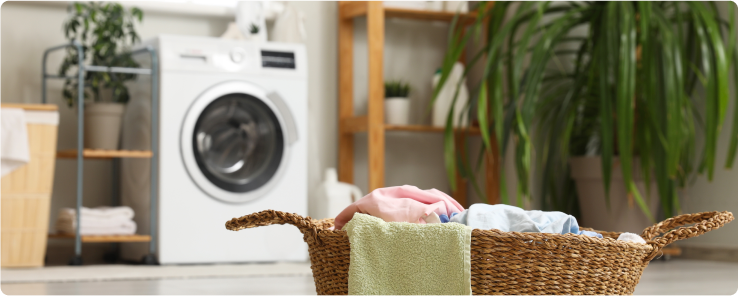
-
6
Install a smart water device
Even the most attentive homeowner can’t be everywhere at once. That’s the power of smart technology when it comes to the question of how people can save water at home. Devices that monitor water usage in real time—like the Flo Smart Water Monitor and Shutoff from Moen—can catch leaks the moment they start, help you track how much water you're using, and even shut off your system automatically in case of an emergency.
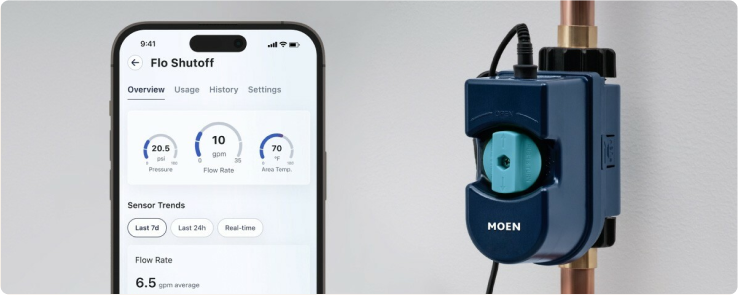
Making water conservation easier, together
At the end of the day, conserving water at home takes more than remembering to turn off the tap. It means rethinking your home to work smarter, not harder. From fixing sneaky leaks to installing smart devices that help you track usage in real time, small changes can add up to serious savings.
Frontdoor is here to help you build the environmentally-conscious home of your dreams. Download the app today to video chat with our Plumbing Experts. Whether you’re looking for help identifying leaks, step-by-step guidance for smart upgrades, or general home efficiency tips, our Experts are here to help. Because at Frontdoor, we believe that using less shouldn’t feel like doing more.
Was this article helpful?


